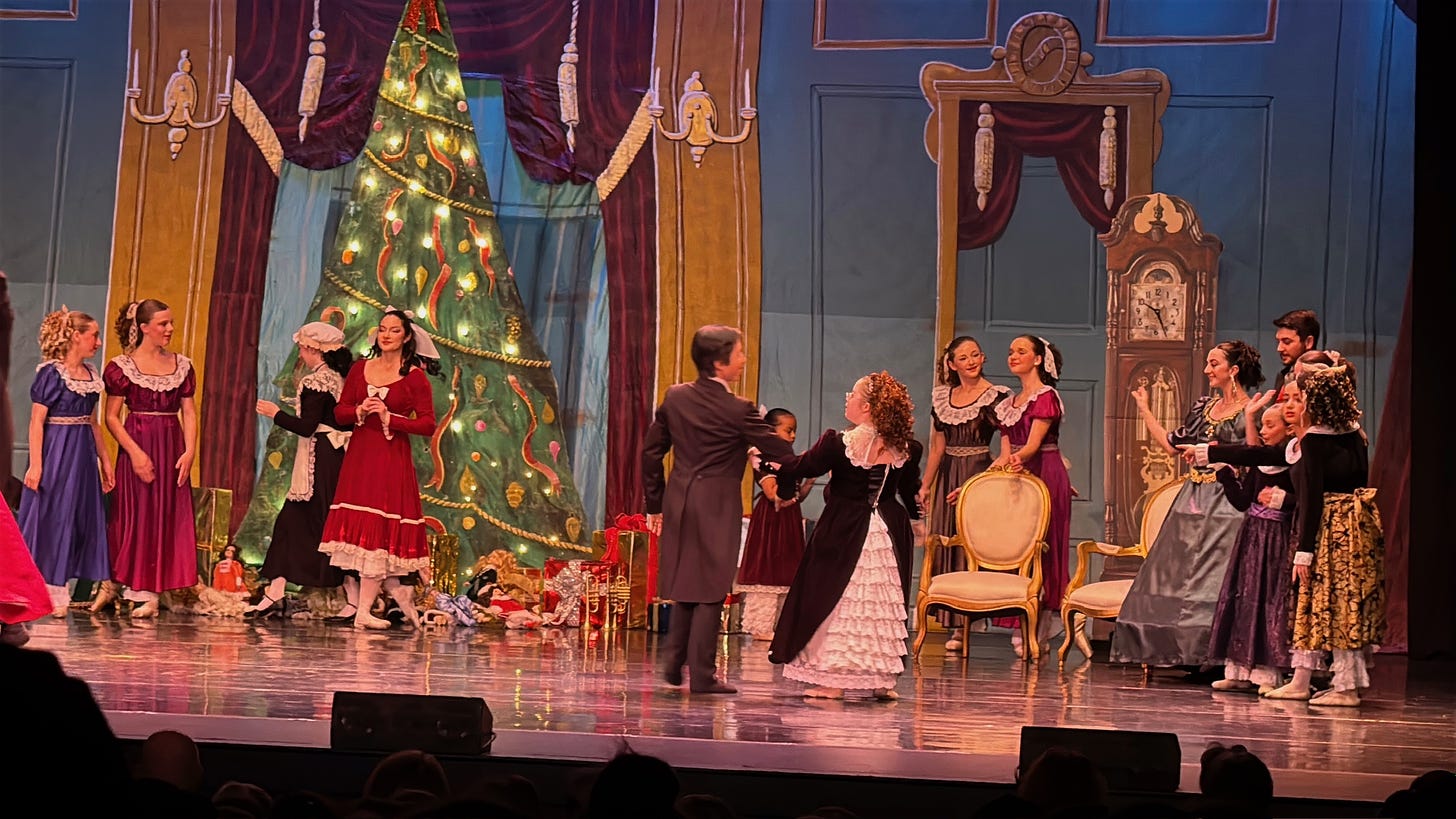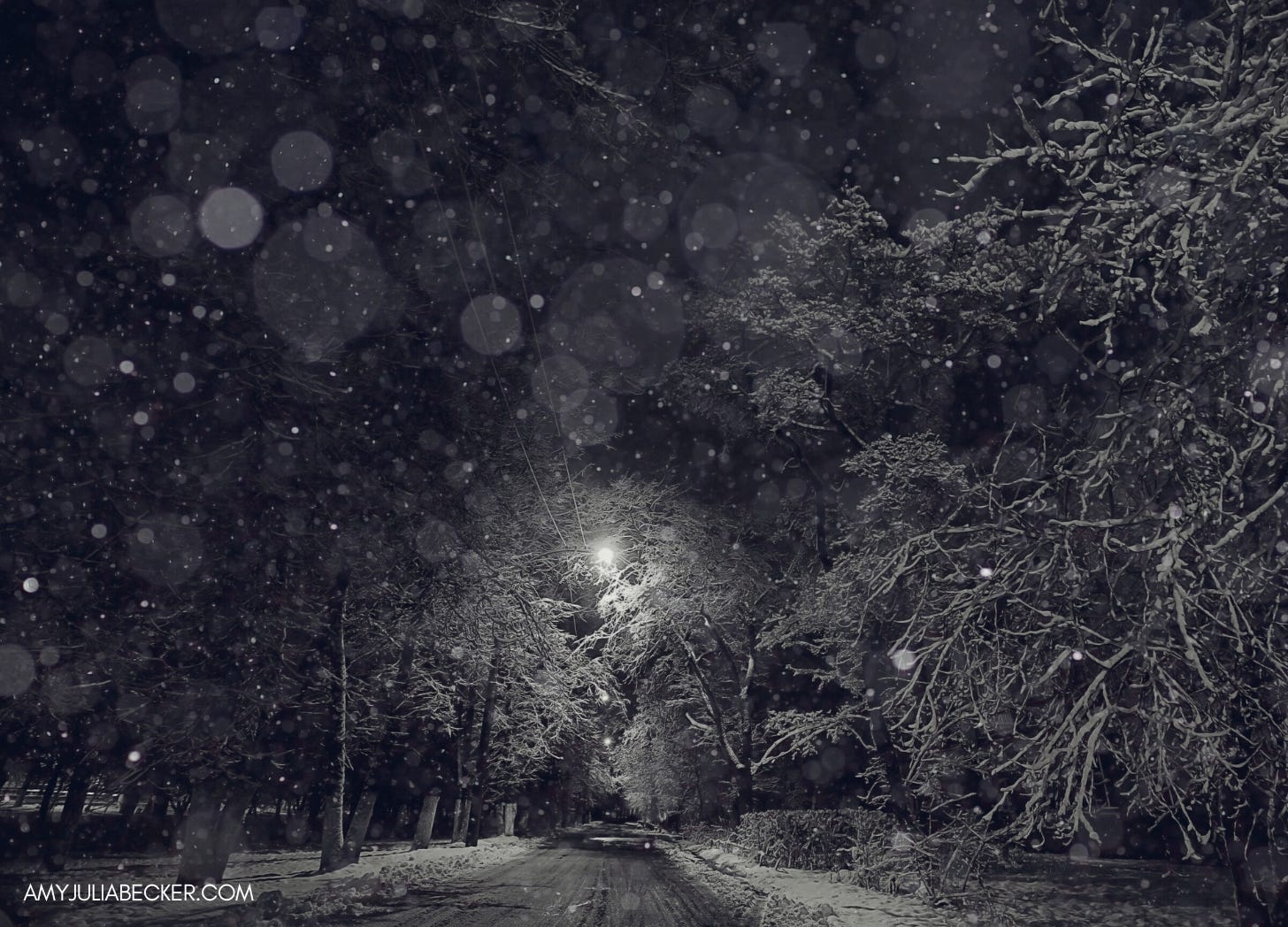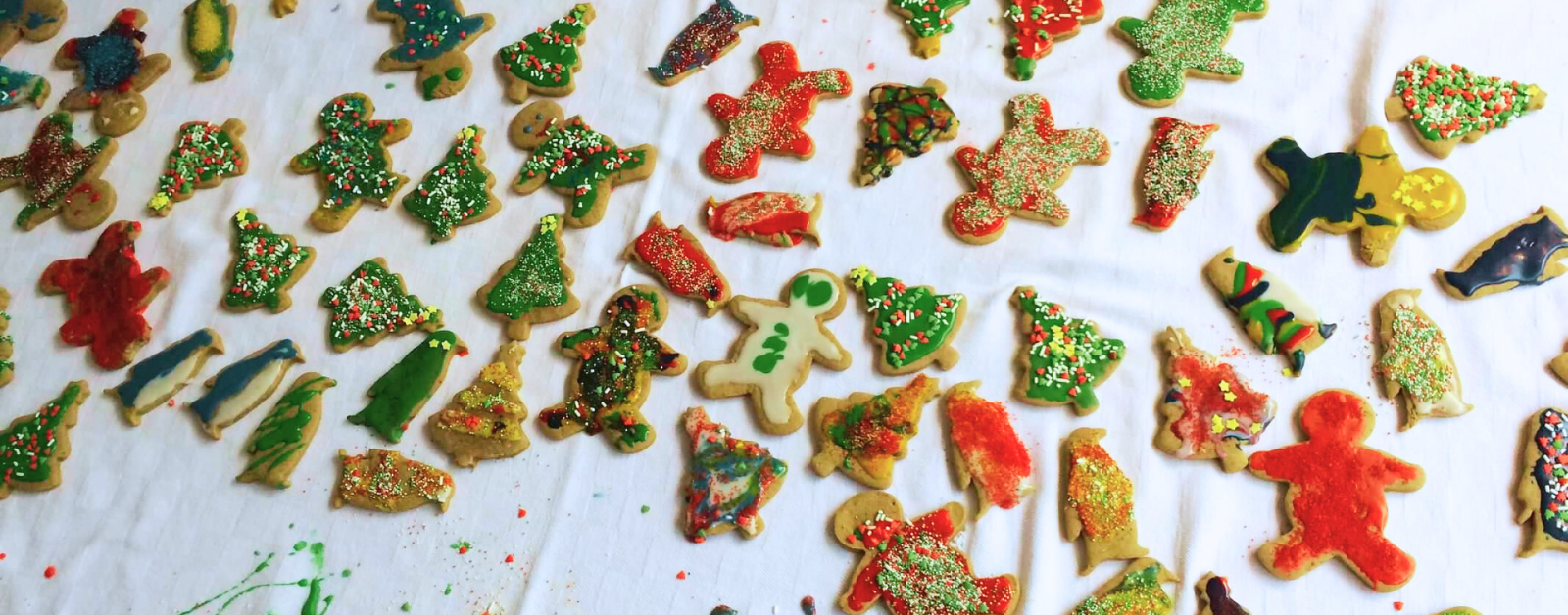Amidst the morning snowfalls and twinkling lights and jolly tunes, we’ve received grim news from a few different people in recent weeks. One of my childhood friends died in her sleep, leaving her beloved husband and children behind. One of our kids’ friends lost her dad to cancer. Another friend told us his granddaughter had taken her life.
I want the story of our life to be one of tinsel and mistletoe. Often it is one of sorrow and shadow.

Magic of Christmas
I’ve been reading Fleming Rutledge’s Advent this season, and she has reminded me of the necessity of entering the darkness of the world in order to truly celebrate the light on Christmas morn. Rutledge warns against the magic of Christmas. She exhorts us instead to embrace the mystery of the incarnation.
Her words got me thinking about the difference between magic and mystery at Christmas. The magic of Christmas comes through all the things we can control: the decorations and sugary treats, the balls of light and jingling playlists, the eggnog and presents. It comes through Santa Claus and holiday movies, through town festivals, winter carnivals, and cocktail parties. There’s nothing wrong with the magic, per se. We loved hearing Marilee sing Carol of the Bells in our local Holiday in the Depot. We loved seeing Penny dance in The Nutcracker (you can watch a one-minute clip here). We’ve watched Elf and hung our stockings and decorated with delight. Magical.

But if Christmas is reduced to magic, it is reduced to things we can control. And that control is based on an illusion—the illusion that everything is sugar and light, that everyone has their material and emotional needs met, that we exist to gratify our surface desires, and that all we need is belief in human goodness in order to make the world right.

Mystery of Christmas
The core message of Christmas is something very different than magic. Instead, Christmas invites us into mystery, something by definition, unknowable and uncontrollable. The core message of Christmas is that we live in darkness and desperately need light that we cannot create for ourselves, that we live through grief and loss and pain and violence that we cannot rectify for ourselves, that our world is as very hopeless as it seems, unless. Unless God enters into the void.
The mystery of Christmas is that God entered time and space. Even more, that God entered time and space in the form of an embryo, a zygote, a fetus, a baby, dependent and needy and embodied. The mystery—the unknowability—of Christmas is the promise that God has made himself known in the person of Jesus Christ. The mystery of Christmas is that God continues to enter in, even to this current moment of violence and despair and shadow.
As Andy Crouch has written, we live in an era of magic that extends far beyond Christmas. More so than ever before, our technology promises magic—effortless power wielded on our behalf and for our desires.
But we also live in an age where that magic disappoints us, over and over again. Where the kid finally realizes who puts the gifts in the stockings. Where the adult recognizes that sadness doesn’t ebb just because it is Christmastime. Where our devices have only led to greater anxiety, depression, and despair, though they promised effortless connection and endless scrolling delight.
God With Us
The mystery of Christmas acknowledges the suffering and sorrow of a lonely and broken world. It even claims that the God who created the cosmos not only cares about that suffering and sorrow but enters into it as Emmanuel, “God with us.”
If we move past magic and enter the mystery of the incarnation, we, alongside Mary all those years ago, acknowledge the darkness and at the same time surrender to God’s promise of inbreaking light.
So, even as we bake cookies and clink our glasses and purchase yet more items from Amazon, we also remember that the shepherds shook with fear when they heard of the gift God gave on Christmas morn. We wonder at the promise of light and life. We proclaim, with the gospel writers, that the light shines in the darkness. We become people at home with both the darkness and the light, people who move from the surface of entertainment and cheer to the depths of sorrow and the depths of joy. When we enter the mystery of Christmas, we surrender control. We enter into suffering. And, ultimately, we enter into the mystery of unending and unfailing love that promises to save us all.
Get my reflections on disability, faith, and culture delivered to your inbox each week.
Subscribe here!
Let’s stay in touch. Subscribe to my newsletter to receive weekly reflections that challenge assumptions about the good life, proclaim the inherent belovedness of every human being, and envision a world of belonging where everyone matters. Follow me on Facebook, Instagram, and YouTube and subscribe to my Reimagining the Good Life podcast.



